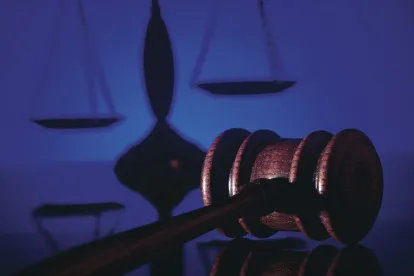The U.S. International Trade Commission (ITC) upheld an administrative law judge’s (ALJ’s) ruling finding a respondent in default based on spoliation of evidence, and upholding a sanction of attorneys’ fees against both the respondent and its law firm, based on a sanctions motion directed solely to the respondent. Certain Opaque Polymers, Inv. No. 337-TA-883 (ITC, Apr. 30, 2015) (Schmidtlein, Comm’r, dissenting).
In Opaque Polymers, Dow Chemical accused Organik Kimya of importing products made using its trade secrets. After discovering that key evidence had been destroyed, lost or altered, Dow moved under Rule 210.33, the ITC’s analog to F. R. Civ. P. 37, for a default sanction and attorneys’ fees against Organik. After a hearing, the ALJ granted the motion, finding that the spoliation of evidence was done in bad faith, and that Organik’s acts justified a default sanction. The ALJ also found Organik and its law firm jointly liable for Dow’s attorneys’ fees, ruling the law firm had an independent duty to prevent spoliation and ensure information provided to the ALJ was accurate. Organik requested review of the default sanction, and the law firm separately intervened for review of its liability, arguing both that its conduct was not culpable and that because there was no notice it could potentially be liable, the ruling violated due process.
The ITC upheld the ALJ on review. First, the ITC found that Organik’s spoliation of evidence, including overwriting a laptop after the ALJ had ordered the laptop preserved, justified a sanction of default and attorneys’ fees. Next, a divided ITC, in an issue of first impression, found that Dow’s filing of a motion under Rule 210.33 was adequate notice to the law firm that it could be jointly sanctioned, noting that Dow’s motion pointed to a specific letter drafted by the law firm as support for sanctions. The ITC further found that even if the ALJ had not provide sufficient due process, the ITC’s review of his decision satisfied due process. The ITC rejected the firm’s arguments that its conduct could only be sanctioned under Rule 210.4, which provided additional procedural protection, and that bad faith was not necessary for sanctions. The ITC also rejected the argument that the firm’s duty of advocacy under ABA Model Rule 1.7 entitled it to specific notice, noting both that Fed. R. Civ. P. 37 does not require specific notice before leveling sanctions, and that the firm’s argument suggested it was obligated to withdraw as respondent’s counsel, which it had not done. Finally, the ITC found that the law firm’s failure to preserve evidence and check the veracity of statements explaining the loss of evidence was culpable conduct.
Commissioner Schmidtlein filed a dissent in which she argued that the question of the firm’s liability should be remanded to the ALJ because of a lack of due process. The commissioner noted that Dow’s sanctions motion sought sanctions solely against Organik, and disagreed that the mere filing of the sanctions motion under Rule 210.33(c) should be considered notice that counsel could be sanctioned. Commissioner Schmidtlein also noted that the ALJ had made statements that suggested to the law firm that its conduct was not at issue, negating any implicit notice and making an award on the current record unjust. Finally, Commissioner Schmidtlein dissented from the ITC’s opinion that its own review process constituted notice and an opportunity to be heard, noting that the ITC had explicitly barred the introduction of new evidence on review.




 />i
/>i
